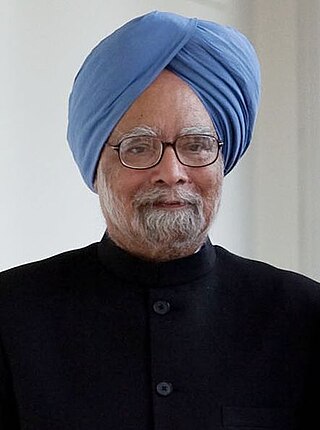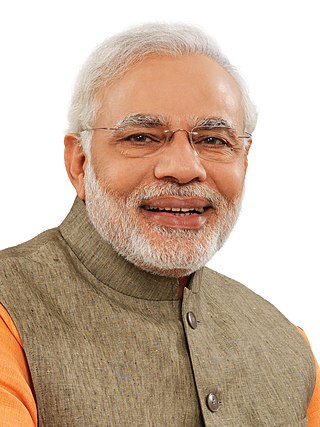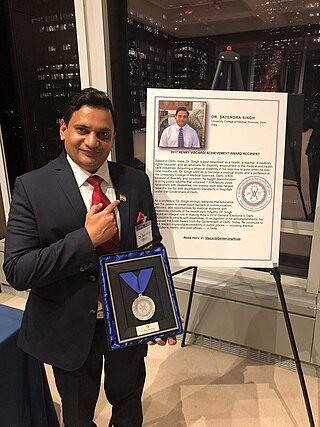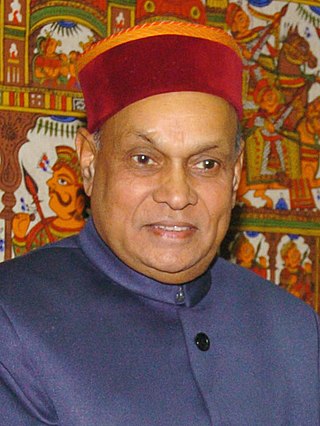
New Zealand is a representative democracy in which members of the unicameral New Zealand Parliament gain their seats through elections. General elections are usually held every three years; they may be held at an earlier date at the discretion of the prime minister, but that usually only happens in the event of a vote of no confidence or other exceptional circumstances. A by-election is held to fill an electorate vacancy arising during a parliamentary term. Election day is always a Saturday, but advance voting is allowed in the lead-up to it. The most recent general election took place on 14 October 2023.
In electoral systems, voter registration is the requirement that a person otherwise eligible to vote must register on an electoral roll, which is usually a prerequisite for being entitled or permitted to vote.

Postal voting is voting in an election where ballot papers are distributed to electors by post, in contrast to electors voting in person at a polling station or electronically via an electronic voting system.
Under the Iraqi constitution of 1925, Iraq was a constitutional monarchy, with a bicameral legislature consisting of an elected House of Representatives and an appointed Senate. The lower house was elected every four years by manhood suffrage. The first Parliament met in 1925. Ten general elections were held before the overthrow of the monarchy in 1958.
India has a parliamentary system as defined by its constitution, with power distributed between the union government and the states. India's democracy is the largest democracy in the world.
An electoral roll is a compilation that lists persons who are entitled to vote for particular elections in a particular jurisdiction. The list is usually broken down by electoral districts, and is primarily prepared to assist election officials at polling places. Most jurisdictions maintain permanent electoral rolls, which are updated continuously or periodically, while some jurisdictions compile new electoral rolls before each election. Electoral rolls are the result of a process of voter registration. In most jurisdictions, voter registration is a prerequisite for voting at an election. Some jurisdictions do not require voter registration, and do not use electoral rolls, such as the state of North Dakota in the United States. In those jurisdictions a voter must provide identification and proof of entitlement to vote before being permitted to vote.

General elections were held in India in five phases between 16 April 2009 and 13 May 2009 to elect the members of the fifteenth Lok Sabha. With an electorate of 716 million, it was the largest democratic election in the world until being surpassed by the 2014 general election.

General elections were held in India in nine phases from 7 April to 12 May 2014 to elect the members of the 16th Lok Sabha. With 834 million registered voters, they were the largest-ever elections in the world until being surpassed by the 2019 election. Around 23.1 million or 2.71% of the total eligible voters were aged 18–19 years. A total of 8,251 candidates contested the 543 elected Lok Sabha seats. The average election turnout over all nine phases was around 66.40%, the highest ever in the history of Indian general elections until 2019 election.

Veeravalli Sundaram Sampath served as 18th Chief Election Commissioner (CEC) of the Election Commission of India from 2012 to 2015. He succeeded S. Y. Quraishi as the Chief Election Commissioner on 11 June 2012. Born on 16 January 1950, Sampath retired on 15 January 2015 when he attained 65 years of age.
Suffrage in Australia is the voting rights in the Commonwealth of Australia, its six component states and territories, and local governments. The colonies of Australia began to grant universal male suffrage from 1856, with women's suffrage on equal terms following between the 1890s and 1900s. Some jurisdictions introduced racial restrictions on voting from 1885, and by 1902 most Australian residents who were not of European descent were explicitly or effectively excluded from voting and standing for office, including at the Federal level. Such restrictions had been removed by 1966. Today, the right to vote at all levels of government is held by citizens of Australia over the age of 18 years, excluding some prisoners and people "of unsound mind".

A voter identification law is a law that requires a person to show some form of identification in order to vote. In some jurisdictions requiring photo IDs, voters who do not have photo ID often must have their identity verified by someone else or sign a Challenged Voter Affidavit in order to receive a ballot to vote.

The Delhi Legislative Assembly election was held on 4 December 2013, with the result announced on 8 December resulting in formation of the Fifth Legislative Assembly of Delhi.

Dr Satendra Singh is a medical doctor at the University College of Medical Sciences and Guru Tegh Bahadur Hospital, Delhi. A physiologist by profession, Singh contracted poliomyelitis at the age of nine months but went on to complete a Bachelor of Medicine, Bachelor of Surgery from Ganesh Shankar Vidyarthi Memorial Medical College, Kanpur and later on Doctor of Medicine in Physiology. He is the first-ever Indian to win the prestigious Henry Viscardi Achievement Awards given to extraordinary leaders in the global disability community.

The 2014 Andhra Pradesh Legislative Assembly election took place on 30 April and 7 May 2014 to elect members to the legislatures of Andhra Pradesh and Telangana. It was held concurrently with the Indian general election. The results were declared on 16 May 2014. The Telugu Desam Party led by N. Chandrababu Naidu won a majority of the 175 seats in the residual Andhra Pradesh, while Telangana Rashtra Samithi led by K. Chandrashekar Rao won in the new state of Telangana.

The Election Commission of India (ECI) is a constitutional body established by the Constitution of India empowered to conduct free and fair elections in India. The Election commission is headed by a Chief Election Commissioner and consists of two other Election Commissioners.

The Himachal Pradesh Legislative Assembly election, 2017 was held on 9 November 2017 to elect all 68 members of the Himachal Pradesh Legislative Assembly.

General elections were held in India from 19 April to 1 June 2024 in seven phases, to elect all 543 members of the Lok Sabha. Votes were counted and the result was declared on 4 June to form the 18th Lok Sabha. On 7 June 2024, Prime Minister Narendra Modi confirmed the support of 293 MPs to Droupadi Murmu, the president of India. This marked Modi's third term as prime minister and his first time heading a coalition government, with the Telugu Desam Party of Andhra Pradesh and Janata Dal (United) of Bihar emerging as two main allies.
In Australia, voter registration is called enrolment. Enrolment is a prerequisite for voting at federal elections, by-elections and referendums, as well as all state and local government elections; and it is generally compulsory for enrolled persons to vote unless otherwise exempted or excused. Enrolment is compulsory for Australian citizens over 18 years of age who have lived at their current address for at least one month. Enrolment is not compulsory for persons with no fixed address who are not already enrolled. Residents in Australia who had been enrolled as British subjects on 25 January 1984, though not Australian citizens, continue to be enrolled, and cannot opt out of enrolment. For local government elections, an elector generally does not require to be an Australian citizen. Once enrolled, a person cannot opt out of enrolment. Enrolment is optional for 16- or 17-year-olds, but they cannot vote until they turn 18, and persons who have applied for Australian citizenship may also apply for provisional enrolment which takes effect on the granting of citizenship.

The Elections Act 2022 is an act of the Parliament of the United Kingdom that was introduced to the House of Commons in July 2021 and received royal assent on 28 April 2022. The act makes photo identification compulsory for in-person voting in Great Britain for the first time. Before the act was passed, Northern Ireland had been the only part of the UK to require voter identification. The act also gives the government new powers over the independent elections regulator; the Electoral Commission has said it is "concerned" about its independence from political influence in the future.

Rajiv Kumar is a former Indian Administrative Service officer. On 15 May 2022, he assumed the charge as the 25th Chief Election Commissioner of India, succeeding Sushil Chandra.














